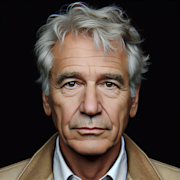David Lean: Master of Epic Classics

Introduction
David Lean, a British film director renowned for his epic classics, was a true visionary of the silver screen. From sweeping landscapes to compelling storytelling, Lean’s films transported audiences to new worlds filled with adventure, romance, and larger-than-life characters. In this blog post, we dive deep into the masterful works of David Lean, examining his invaluable contributions to the film industry.
Early Life and Career
David Lean was born on March 25, 1908, in Croydon, England. His passion for filmmaking developed at an early age, and he initially started his career as a film editor. Lean’s knack for editing quickly caught the attention of others in the industry, leading to opportunities for him to direct small-scale films.
The Epic Revolution
Brief Overview of Epic Classics
Epic classics refer to films that not only captivate viewers with their captivating stories but also transport them to different eras or worlds through their grand scale and immersive visuals. These films often feature sweeping landscapes, expansive sets, and large ensembles of characters.
Lean’s Approach to Epics
David Lean’s style of filmmaking perfectly embodied the essence of epic classics. He meticulously crafted every scene, paying attention to the smallest details to ensure a grand visual experience. Lean’s productions were characterized by vast landscapes, ornate sets, and meticulous period costumes, which added authenticity to his films.
Timeless Masterpieces
Lawrence of Arabia (1962)
Considered one of David Lean’s most notable works, “Lawrence of Arabia” is a sweeping epic that chronicles the life of British officer T.E. Lawrence during World War I. Lean’s attention to detail is evident in the film’s breathtaking desert landscapes and larger-than-life battle sequences. The film’s immersive cinematography earned it seven Academy Awards, including Best Director.
The Bridge on the River Kwai (1957)
Another masterpiece crafted by David Lean, “The Bridge on the River Kwai” is set during World War II and follows a group of British prisoners of war forced to build a bridge for the Japanese. Lean’s skilled direction brings out the internal conflicts faced by the characters while showcasing stunning jungle scenery. The film received critical acclaim and won seven Academy Awards, including Best Picture and Best Director.
Doctor Zhivago (1965)
Drifting away from historical war epics, Lean delves into romantic drama with “Doctor Zhivago.” Set against the backdrop of the Russian Revolution, the film tells the story of a physician caught between his love for two women. Lean beautifully captures the winter landscapes of Russia and skillfully evokes the emotional turmoil of the characters. The film was a commercial success and acquired five Academy Awards.
Legacy and Influence
David Lean’s meticulous attention to detail and his ability to create immersive experiences left a lasting impact on the film industry. His epic films inspired countless aspiring filmmakers, who continue to draw inspiration from his works. Lean’s masterpieces still resonate with audiences today, showcasing the director’s timeless storytelling abilities.
Conclusion
David Lean will forever be remembered as a visionary director and master of epic classics. His ability to transport audiences to different worlds through grand visuals and compelling stories is unparalleled. His films, such as “Lawrence of Arabia,” “The Bridge on the River Kwai,” and “Doctor Zhivago,” will continue to captivate audiences for generations to come. As we celebrate his contributions to the film industry, we honor a true legend whose works will forever inspire and entertain.

Desmond van der Walt
Journalist
More From Classics Authority Movies

Movie
The Legacy of John Wayne: Hollywoods Original Cowboy

Movie
The Wild Bunch (1969)

Movie
Behind the Scenes: The Untold Stories of Classic Movie Production

Movie
Sunrise (1927)

Movie
Nashville (1975)

Movie
Cinematic Transformations: Classic Actors Who Successfully Reinvented Themselves





